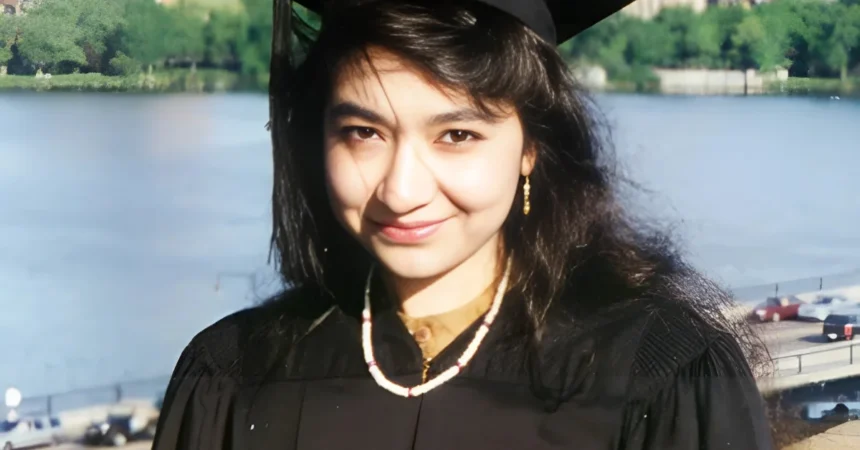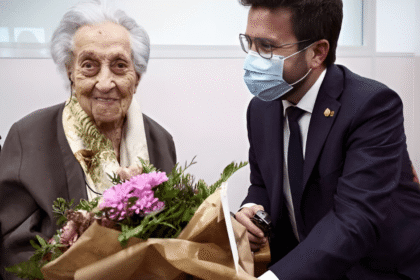The plea from the Pakistani government for the release of Dr. Aafia Siddiqui has drawn a measured response from the United States. Following Prime Minister Shehbaz Sharif’s request to President Biden for a presidential pardon, the U.S. State Department has reiterated its position, emphasizing that it does not comment on private diplomatic communications.
- Background on Dr. Aafia Siddiqui
- Legal Proceedings and Sentencing
- Pakistan’s Official Request for Pardon
- Diplomatic Dynamics
- The Broader Implications of Siddiqui’s Case
- Public Sentiment in Pakistan
- U.S. Legal Framework and Diplomatic Relations
- The Role of the Department of Justice
- Ongoing Legal Proceedings
- Future Prospects for Diplomatic Engagement
- The Way Forward
- Final Thoughts on a Complex Case
Background on Dr. Aafia Siddiqui
Dr. Aafia Siddiqui, a Pakistani neuroscientist, has been at the center of a highly publicized legal battle since her arrest in Afghanistan in 2008. She was convicted in 2010 in the U.S. on charges of attempted murder and assault on American personnel. The case has generated significant controversy, with many in Pakistan viewing her as a victim of injustice and a symbol of the complex relationship between the U.S. and Pakistan.
Born in Karachi, Siddiqui was educated in the United States, where she completed her PhD at the Massachusetts Institute of Technology (MIT). Her transition from a promising academic to a convicted felon has fueled debates about national security, human rights, and the treatment of prisoners.
Legal Proceedings and Sentencing
Dr. Siddiqui was arrested by Afghan authorities after being found in possession of materials that U.S. officials deemed suspicious. During her detention, she was accused of attempting to shoot American soldiers and FBI agents while being transferred to a U.S. military facility in Afghanistan. The incident led to her conviction, resulting in a lengthy prison sentence that has become a focal point for human rights advocates.
Pakistan’s Official Request for Pardon
In a recent development, the government of Pakistan formally requested a presidential pardon for Dr. Siddiqui. This plea was highlighted in a report presented in the Islamabad High Court, where the Additional Attorney General, Manoor Iqbal Dogal, disclosed Prime Minister Sharif’s letter to President Biden.
The plea underscores the Pakistani government’s ongoing efforts to facilitate Siddiqui’s release and her safe return to Pakistan. During court proceedings, Justice Sardar Ejaz Ishaq Khan presided over the case, which was filed by Dr. Fauzia Siddiqui, Aafia’s sister. Dr. Fauzia expressed her hope that the diplomatic communication would lead to a favorable outcome for her sister.
Diplomatic Dynamics
The request for a pardon from the U.S. president reflects the delicate nature of diplomatic relations between Pakistan and the United States. Over the years, Dr. Siddiqui’s case has sparked widespread protests in Pakistan, with calls for her release echoing from various political and civil society groups. Advocates argue that her case illustrates broader issues of legal accountability, human rights violations, and the treatment of individuals in conflict zones.
The U.S. State Department’s spokesperson, Vedant Patel, emphasized that such matters fall under U.S. legal jurisdiction, directing inquiries about Dr. Siddiqui’s case to the Department of Justice. This response indicates a reluctance to engage directly in the diplomatic appeals related to Siddiqui’s incarceration.
The Broader Implications of Siddiqui’s Case
Dr. Aafia Siddiqui’s case is not only a legal matter but also a symbol of the strained U.S.-Pakistan relationship. The complexities surrounding her detention and the nature of her charges have led to a dichotomy in public perception. While some view her as a terrorist attempting to harm U.S. officials, others regard her as a victim of geopolitical dynamics.
Public Sentiment in Pakistan
In Pakistan, Siddiqui is often portrayed as a national figure, with her plight resonating deeply within segments of the population. Her case has been utilized by political parties and activists to critique U.S. foreign policy and military actions in the region. Demonstrations advocating for her release have become a common sight, highlighting public frustration with perceived injustices.
The Pakistani government’s current efforts to seek a pardon may be seen as an attempt to appease public sentiment while addressing international diplomatic concerns. The case underscores the tensions between national pride and the realities of diplomatic negotiations.
U.S. Legal Framework and Diplomatic Relations
The U.S. legal system operates independently of political influence when it comes to criminal cases. The State Department’s stance reflects a commitment to uphold the rule of law, emphasizing that any request for pardon must follow the established legal processes.
The Role of the Department of Justice
The Department of Justice plays a critical role in adjudicating pardon requests, maintaining that such matters are sensitive and legally complex. While the U.S. government recognizes the diplomatic implications of the case, it also insists that legal principles govern the treatment of individuals accused of crimes against U.S. personnel.
Ongoing Legal Proceedings
As legal proceedings regarding Dr. Siddiqui’s case continue, the potential for her release remains uncertain. The Islamabad High Court’s involvement reflects the judiciary’s role in addressing the concerns raised by her family and supporters. The outcome of these proceedings, alongside the government’s diplomatic efforts, will likely shape the future discourse around Dr. Siddiqui’s situation.
Future Prospects for Diplomatic Engagement
The Pakistani government’s appeal to the U.S. president represents a strategic maneuver to foster diplomatic goodwill and potentially reframe the narrative surrounding Dr. Aafia Siddiqui. The success of these efforts will depend on the ability of both nations to navigate the intricate legal and political landscapes that define their relationship.
As discussions unfold, stakeholders from both sides will be closely monitoring the developments surrounding Dr. Siddiqui’s case. The implications of these proceedings extend beyond the individual, influencing broader discussions about justice, human rights, and the complexities of international relations.
The Way Forward
Moving forward, the situation surrounding Dr. Aafia Siddiqui will require careful diplomacy and a nuanced understanding of the intersecting legal and humanitarian issues involved. Both Pakistan and the United States must balance their national interests with a commitment to addressing the human rights concerns raised by Dr. Siddiqui’s incarceration.
Final Thoughts on a Complex Case
Dr. Aafia Siddiqui’s case serves as a reminder of the broader challenges faced by individuals caught in the crosshairs of international conflict and legal systems. As her story continues to unfold, it remains a poignant example of the complexities that define U.S.-Pakistan relations and the ongoing quest for justice in an increasingly interconnected world.
#AafiaSiddiqui #USPakistanRelations #Diplomacy #HumanRights #Justice #StateDepartment #PakistaniPolitics #InternationalLaw







